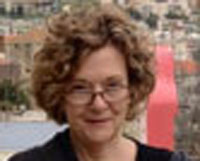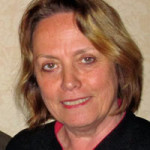Colloquium Committee
The next IARPP Colloquium is about to begin on May 11, 2019.
Robert Grossmark’s (USA) recent paper, “Psychoanalytic Companioning” (Psychoanalytic Dialogues, 2016:698-712), will be discussed by the author and by an international panel comprising Roni Baht (Israel), Duncan Cartwright (South Africa), Stavros Charlambides (Greece), Lisa Director (USA), David Lichtenstein (USA), Juan Jose Martinez Ibanez (Spain), Marie Jose Mezzara (Chile), Donnel Stern (USA), Anne Marie Swan (Australia) and Maria Tammone (Italy).
The colloquium will be conducted by email from Saturday, May 11 through Thursday, May 23, 2019. The entire IARPP membership is eagerly invited both to follow the unfolding dialogue as well as to participate in it.
The paper, currently available to all members on the IARPP Members Intranet, explores a concept at the center of Grossmark’s approach to what he calls an “unobtrusive” relational stance. To Grossmark’s way of thinking, this paper “does challenge and widen the idea of what constitutes intersubjectivity and the definition of the analyst’s subjectivity.”
IARPP Bulletin Editor, Matt Aibel (USA), recently spoke with Grossmark about the association’s forthcoming focus on his work.
Robert Grossmark with Matt Aibel
Robert, can you tell us about the roots of your concept of psychoanalytic companioning?
More and more I’ve found that we are faced with patients and treatment situations that stretch and challenge our notions of clinical psychoanalytic practice. Too often I would hear of patients who could not use psychoanalytic work or were just too primitive or narcissistic. Such complaints came from more classically informed colleagues who found that many patients were unable to utilize verbal interpretations and understanding of their unconscious, as well as from more relational and interpersonal colleagues who found that patients were less than eager or unable to engage dialogically with the analytic process and were unwilling to talk about or reflect on the analytic relationship itself.
Having worked in settings with many less than typical psychoanalytic patients (the Admissions Unit of the State Psychiatric Hospital and a Public Health Center in the South Bronx [New York] in the 80s, to mention just two), I was familiar with the idea that we have to be creative and available for all manner of patients who ask us to enter into their world, their idiom and their frame on their terms. So often we find ourselves working with people who have little or no self and object constancy, damaged or peculiar senses of the self and other, who are often predominated by states of deadness, non-aliveness, fragmentation and disorientation as to who and where they are. I am not only talking about patients who are clearly – and diagnostically – very challenged, but also patients who are in many areas very capable and developed but also harbor areas of themselves that are characterized by these more archaic and disturbing phenomena. These are patients for whom the idea of the analyst as a separate subject is greatly constrained.
And so what technique or path did you evolve to better engage with these patients and these areas?
Having taken much from the relational turn in psychoanalysis, but concerned that we might close down the space for these less developed and less related areas of being that patients bring to the treatment, I developed the notion of the unobtrusive relational analyst who can engage with the patient unencumbered by the constraints of neutrality or abstinence, yet can be unobtrusive to the full expression of the patient’s inner world and psychic idiom in the treatment.
I found that when I engaged with patients in this dimension, the treatment became a place for the narrating of yet-to-be-known aspects of the patient’s trauma and/or the many troubled aspects of their inner worlds. And these narratives would find expression in mutual enactment. Rather than seeing enactment as a block to the progress of treatment, I came to see enactment as the mutual narration in psychic and behavioral action of what had been dissociated or never formed in the patient’s mind. I found that when I was unobtrusive to this flow of enactment, I would live through all manner of disturbances and regressed states with patients. I found that rather than trying to pull patients out of these altered and disorienting states, I could companion them in these states in a register of with-ness and being known that seemed to offer a new dimension of healing, both powerful and intimate. In short I was interested to going into these states with the patient, however unrelated, dead or confusing they might be, rather than attempting to move the patient out of these states into a more dialogic, related and reflective state. I called this “psychoanalytic companioning,” and the paper we will be discussing in the Colloquium focuses on the theoretical underpinnings of the concept in terms of developmental and Intersubjectivity theory, and offers a detailed account of one treatment conducted in this register.
Are there particular theorists on whose shoulders you are standing in your conceiving of this approach to treatment?
More than I can mention, given that I draw on so many different threads of psychoanalytic theory. I often say that I have yet to meet a psychoanalytic theory, or article, that I didn’t learn from. However, I would mention Donnel Stern whose work on unformulated experience and the non-verbal has been a main touchstone for me. Adrienne Harris’s work on non-linear dynamic systems has freed me up to not feel that treatment needs to lean on linear and coherent processes and to value shifts, uncertainty and disruption as necessary parts of a larger process. Sheldon Bach’s valuing of the patient’s inner reality as the primary guiding light of treatment underpins my thinking about entering the “other worlds” of the patient rather than seeking to draw the patient into our world. My major coordinates are Winnicott’s focus on paradox and transitional phenomena and Bion’s container-contained. The latter emphasized the metabolization of the elements of proto- and pre- experience, and this is central to my thinking about the transformative potential of psychoanalytic treatment. Finally I would mention Christopher Bollas, in particular his idea that there is a drive to represent the self. This notion structures my thoughts about the narrative qualities of mutual enactment.
You’ve served as a discussant of an IARPP Colloquium, but this will be your first experience having your own work discussed. How are you feeling about it?
Mostly, I feel that this is a great honor, to share my work with our international community, and I greatly appreciate the invitation to do so. I am so eager to hear from everyone, whether it is the experienced clinicians who have agreed to be discussants or candidates and students who are finding their feet. I sincerely hope that everyone will feel welcomed and will participate.
Speaking of Donnel Stern, he seemed to dedicate every free waking hour to the IARPP Colloquium when his paper was discussed several years back. Any predictions as to how much time you will wind up devoting to this undertaking?
I do recall Don’s great commitment to the colloquium. I don’t think it is a matter of the quantity of time spent, so much as the quality of the experience. It’s such a thrill when people read one’s work seriously, thoughtfully and critically. What more could we want? So, I am not really concerned about the amount of time that the colloquium will take, so much as really looking forward to engaging with people in what I hope will be a stimulating conversation from which we will all benefit.
What do you hope IARPP members come away with? And what do you hope you yourself will come away with?
I believe it would be almost impossible to not learn from an IARPP colloquium. There is always so much that stimulates and hopefully challenges us. I think that the best learning is what comes unbidden, so I am happy to be open to whatever emerges in our conversation. That said, I do think that the “Psychoanalytic Companioning” paper we’ll be discussing does challenge and widen the idea of what constitutes intersubjectivity and the definition of the analyst’s subjectivity. I hope that we’ll be able to engage with that question among others and learn together.
We too look forward to this opportunity to explore Robert’s paper and to participate with colleagues around the world as a thinking community. Please join us.
Rina Lazar (Israel) and Adrienne Harris (USA), Co-Chairs
 Rina Lazar, PhD (Israel)
Rina Lazar, PhD (Israel)
Email Rina Lazar
 Adrienne Harris, PhD (USA)
Adrienne Harris, PhD (USA)
Email Adrienne Harris



